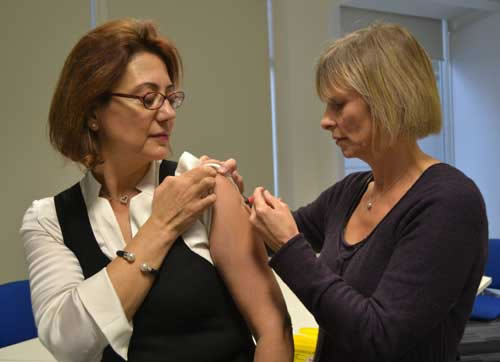Measles Warning Issued After Outbreaks in Local Schools
Significant increase in May with thirty cases reported locally

Warnings of a measles outbreak have been sent to head teachers of every school in Hammersmith & Fulham.
Letters sent on May 21 by (PHE) Public Health England, reported a “significant increase” in cases of the infectious disease in the three boroughs since April.
PHE said 150 children were diagnosed with measles between January 1 and March 31 this year. In May alone, 30 children in the three boroughs caught the disease, compared with zero in all of January.
Many of the new cases were found in three schools: Fulham Boys School, Chelsea Academy and St Marylebone Church of England School.
Written by health protection consultant Dr Janice Lo, the PHE letter which was also sent to schools in Westminster and Kensington & Chelsea reads: “Some of these children may have siblings attending other schools in nearby boroughs, and therefore, we would like to inform you of the affected schools and ask you to stay vigilant for any new cases reported to your schools.”
Initial symptoms of measles include: aching, a runny nose, swollen eyes, coughing, loss of appetite and a high temperature. Four days later these are followed by white spots in the mouth and a blotchy red rash that covers a child’s torso, according to the NHS website.
Dr Lo’s letter adds: “As measles is a highly infectious disease and can lead to serious complications, we strongly encourage you to take this opportunity to ensure your staff and parents are aware of the importance of the MMR vaccine, and encourage them and their children to be vaccinated.”
It came three days before the Government helped spread advice from PHE that parents across the country should ensure their children have had MMR (measles, mumps, and rubella) jabs.
The number of measles cases is rising across the globe. The World Health Organisation blamed a 50% increase in 2018 compared with 2017 on an “anti-vaccination” trend.
The three west London schools, which are all now on half term, have been approached for comment.
The NHS website says most measles cases will wear off after seven to 10 days.
Measles is a viral infection that spreads via contact with droplets from the nose and mouth emitted when sneezing and coughing.
A variety of infections can result from further complications caused by measles, including of the ears, eyes and larynx and airways, also leading to pneumonia and bronchitis. It can also cause diarrhoea and vomiting, which can lead to dehydration. Complications are more commonly suffered by children with weak immune systems and babies.
Deaths are extremely rare, and Public Health England estimates that 20 million measles cases and 4,500 deaths have been averted in the UK since the vaccine was introduced in 1968.
Owen Sheppard – Local Democracy Reporter
Related links
|
